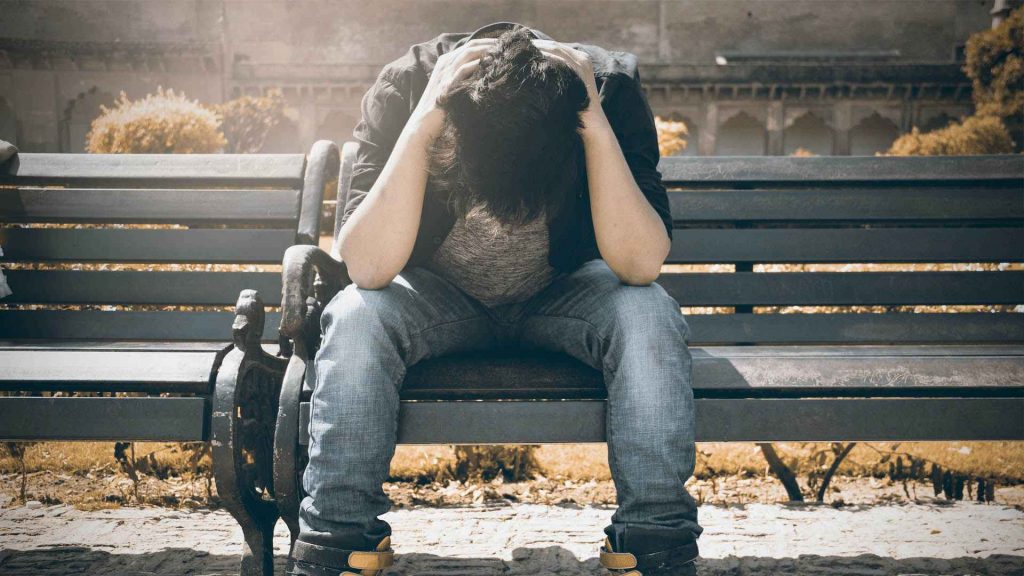ICD 10 For Depression: 10 Things You Should Know About ICD 10 and Depression
It can be difficult to understand or cope with depression. It’s important to know about the conditions of depression. If you or someone you know is struggling with depression, read on for information on 10 things you should know about ICD 10 and depression. ICD 10 stands for International Statistical Classification of Diseases and Related Health Problems, Tenth Revision. Healthcare providers use this classification system to classify mental and behavioral disorders. By understanding ICD 10 and its various categories, you can better understand depression and get help if you need it. And by educating yourself on the subject, you can help raise awareness about this disorder and help put an end to the stigma that surrounds it.
What is ICD 10?
ICD is a classification system for mental and behavioral disorders. It is consist ten codes, with ICD-10-CM being the most recent version. ICD-10-CM has been revised several times since it was first introduced in 1994, with the most recent revision being released in 2016.
They use ICD-10 to classify mental and behavioral disorders. The code that is used to describe a disorder will depend on the specific criteria used to make the diagnosis. There are ten codes in ICD-10, each of which corresponds to a different category of disorder.
Some common categories covered by ICD-10 include mood and anxiety disorders, substance use disorders, personality disorders, schizophrenia, and other psychoses, epilepsy, traumatic brain injury, sleep-related disorders, developmental disabilities, and congenital malformations.
What Are the Different Types of Depression?
Depression is a mental disorder which happens due to persistently low mood, altered sense of pleasure or happiness, decreased interest in activities, and diminished ability to concentrate. There are many different types of depression, each with its own unique symptoms and treatment requirements.
Major depressive disorder (MDD) is the most common form of depression and is mostly due to two or more major symptoms, including depressed mood for at least two weeks, an overall decrease in energy levels, decreased appetite or weight loss, insomnia or hypersomnia, psychomotor agitation or retardation, feelings of guilt or worthlessness.
The causes of depression
Depression is a serious mental disorder that can lead to feelings of sadness, emptiness, hopelessness, and listlessness. It can be caused by many factors, including genetics and lifestyle choices.
There are several different types of depression, each with its own set of causes and symptoms. Major depressive disorder (MDD), the most common type of depression, is characterized by episodes of severe sadness and loss of interest in life. Other types of depression include bipolar disorder (manic-depressive illness), schizophrenia (a mental disorder marked by hallucinations and delusions), post-traumatic stress disorder (PTSD), and obsessive-compulsive disorder.
Depression can be either chronic or episodic. Chronic depression is more serious and often lasts for months or years. Episodic depression is less severe and typically lasts for weeks or months.
Treatment for Depression
Depression is a serious mental illness that can significantly reduce one’s quality of life. There is currently no cure for depression, but there are many treatments available that can help improve the quality of life for people with the condition.
One important treatment for depression is medication. Many people find that medications are the most effective way to treat their depression, and many continue receiving medication throughout their lives in order to maintain their overall health. Other common treatments for depression include therapy, lifestyle changes, and complementary therapies.
How to Know if You are Depressed
There is no one-size-fits-all answer to this question, as the best way to know if you are depressed is to talk to a doctor. However, some key things to keep in mind if you are feeling down include:
1· Being persistently sad or irritable for more than two weeks.
2· Feeling hopeless about the future.
3· Experiencing physical symptoms like headaches, fatigue, and nausea.
If you are struggling with any of these symptoms, it may be worth consulting a doctor. A mental health professional can help assess your condition and provide guidance on how to address it.
Warning Signs of Depression
Depression is a serious mental disorder characterized by low mood, loss of interest or pleasure in activities, poor concentration, significant changes in appetite or sleep patterns, and feelings of hopelessness. ICD (International Classification of Diseases) is a manual created to help healthcare professionals diagnose and track medical conditions. The ICD-10 defines the major depressive disorder as “a persistent mood state that has no satisfactory explanation and reflects a significant change in social or occupational functioning.”
There are many warning signs that can indicate you may be depressed. Some common symptoms include: feeling sad for no reason, experiencing increased or decreased interest in activities you once enjoyed, weight gain or loss despite trying to maintain your usual diet and exercise habits, insomnia or difficulty falling asleep, feelings of worthlessness or guilt, diminished energy levels, thoughts of suicide or dying. If you experience two or more of these symptoms for two weeks or longer, it’s important to speak with your doctor about your feelings.
Tips for Coping with Depression
1. If you are experiencing depression, it is important that you seek professional help as soon as possible.
ICD (International Classification of Diseases) is a classification system used by healthcare professionals to diagnose and categorize diseases. Depression is classified under ICD-10 as a depressive disorder.
There are many different types of depression, and not all people who experience it will experience the same symptoms. However, some common symptoms of depression include low mood, lack of interest in activities that were once enjoyable, decreased appetite, insomnia or excessive sleepiness, feelings of worthlessness or guilt, decreased energy levels, difficulty concentrating or making decisions, and recurrent thoughts of suicide or death.
If you are experiencing any of these symptoms, it is important to reach out for help.
There are many resources available to people who are experiencing depression, including talk therapy and medication. It is also important to be aware that not everyone will experience the same symptoms; what works for one person may not work for another.
2. There are several things that you can do to manage your depression on your own:
First and foremost, it is important to stay positive! Try to find things that make you happy and focus on those things instead of dwelling on the negative aspects of your life. Meditation or mindfulness can be helpful in managing stress and reducing anxiety; practicing yoga or other forms of exercise can also be beneficial in feeling good physically and improving overall mood stability, and spending time with close
How to Get Treatment for Depression
There are a few ways to get treatment for depression, depending on what is available in your area. If you have insurance, your doctor can prescribe medication. There are many options available, including therapy and self-help books.
If you’re experiencing severe depression, you may need to be hospitalized. In some cases, electroconvulsive therapy (ECT) can be effective. ECT is a treatment that uses electric shocks to change the way the brain functions. It’s often used in cases of severe depression that haven’t responded to other treatments.
Medications for Depression
ICD stands for International Classification of Diseases. This classification system is used to determine the severity of a mental disorder. Depression is listed in the ICD-10 as a mood disorder. It is characterized by a persistent low mood and an inability to enjoy life. The symptoms must last for at least two weeks to be classified as depression.
The most common antidepressants used to treat depression are selective serotonin reuptake inhibitors (SSRIs). SSRIs work by increasing the level of serotonin in the brain. Other antidepressants, such as tricyclic antidepressants (TCAs) and monoamine oxidase inhibitors (MAOIs), also work to treat depression but have different side effects. Before taking any medication for depression, it is important to speak with your doctor about your specific symptoms and diagnosis.
Conclusion
Do you have a loved one who is struggling with depression? If you do, it’s important to know the basics about ICD 10 for depression in order to provide support and help them get the treatment they need. Here are ten things you should know about ICD 10 and depression:
1. Depression is a serious mental illness that affects more than just adults. According to the World Health Organization (WHO), depression is now the leading cause of disability worldwide, responsible for an estimated 60% of years lived with disability.
2. The WHO defines two types of depression: unipolar and bipolar disorder. Unipolar depression refers to a single episode of depressive symptoms that last for at least 2 weeks, while bipolar disorder occurs when someone has recurrent episodes of depression, each characterized by different levels of intensity and duration.
3. According to the National Institute for Mental Health (NIMH), people with major depressive disorder (MDD) experience significant impairments in their ability to work or study, cope with daily life tasks, sleep well, enjoy social activities or relationships, and maintain personal hygiene habits. MDD patients are at an increased risk for suicide attempts and completed suicides.


